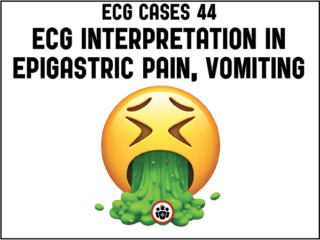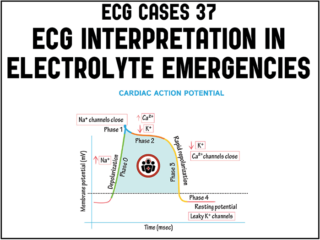ECG Cases 44 ECG Interpretation in Epigastric pain, Vomiting
In this ECG Cases blog with Dr. Jesse McLaren we interpret 10 ECG cases and explore cardiac, metabolic and GI causes: We consider anginal equivalents, and look for ECG signs of Occlusion MI, including subacute occlusion from delayed presentations. We consider electrolyte disturbances and look for ECG signs of hyperkalemia or hypokalemia/hypomagnesemia, and we consider the differential of diffuse ST depression with reciprocal ST elevation in aVR, and false positive STEMI...



